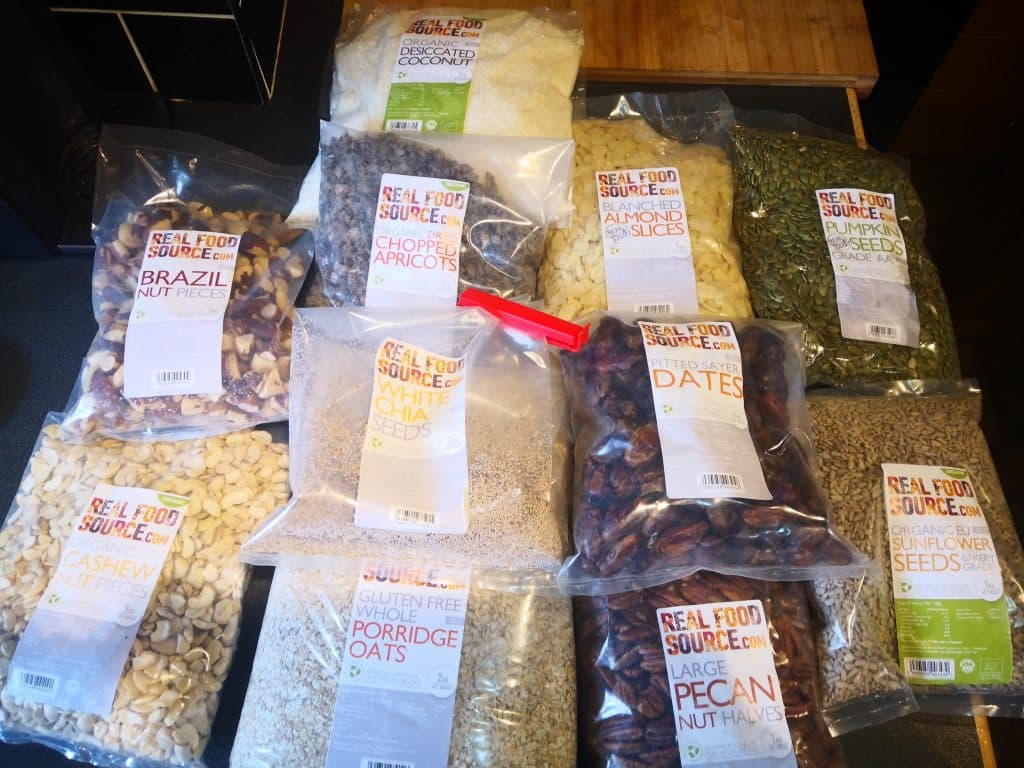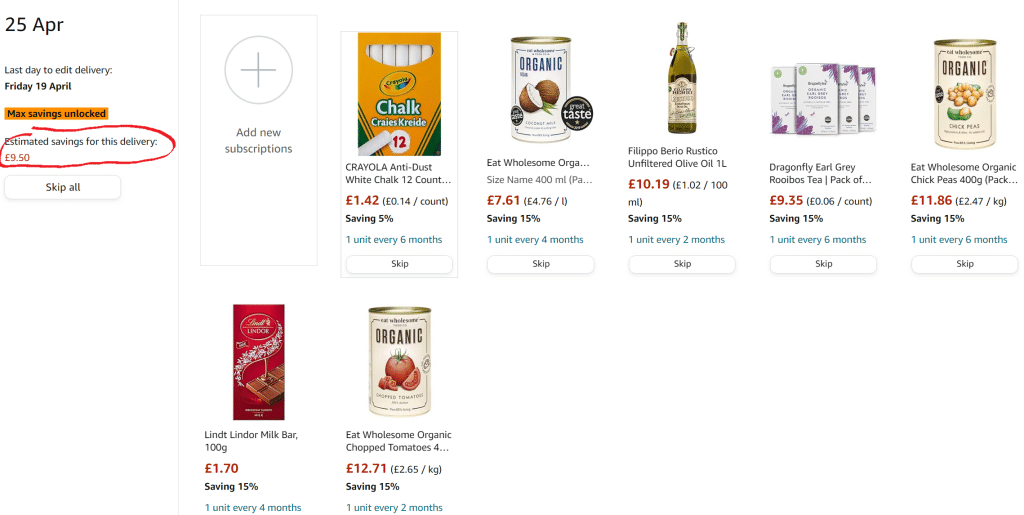Bulk buying offers significant cost savings by allowing you to purchase larger quantities at discounted prices, reducing waste and providing convenience. To maximize these benefits, strategically plan your bulk purchases, compare unit prices, consider storage space, buy only what you’ll use, and split bulk orders with others.
In today’s fast-paced world, where every penny counts, the art of bulk buying has emerged as a game-changer for savvy shoppers. Imagine walking into a store and being able to stock up on your favorite items at a fraction of the cost – that’s the power of bulk buying.
Whether you’re a busy trying to stretch your grocery budget or a cost-conscious individual looking to save on everyday essentials, buying in bulk offers a simple yet effective solution. By purchasing larger quantities of products, you not only save money but also enjoy the convenience of having your go-to items readily available.
But bulk buying isn’t just about saving money; it’s a lifestyle choice that promotes sustainability and reduces waste too. When you buy in bulk, you’re minimizing the need for excessive packaging, which in turn reduces your environmental footprint. It’s a win-win situation for your wallet and the planet.
Table of Contents
Benefits of Buying in Bulk
The advantages of bulk buying extend far beyond the obvious cost savings. By embracing this smart shopping strategy, you’re unlocking a world of benefits that can positively impact your life in more ways than one.
Reduced Waste
In an era where environmental consciousness is paramount, bulk buying emerges as a powerful ally in the fight against waste. Imagine the countless plastic bags, excessive packaging, and unnecessary waste that accumulate from frequent trips to the store for small quantities of items. By opting for bulk purchases, you’re actively reducing your environmental footprint and contributing to a more sustainable future. Personally this is my favourite benefit as ultimately it helps reducing the waste generate.

Convenience
Busy lifestyles often leave little time for frequent shopping trips, and that’s where bulk buying shines. By stocking up on essentials in larger quantities, you’re minimizing the need for constant trips to the store, freeing up valuable time and energy for other priorities.If you use Amazon subscriptions you can ultimately pick up on thinsg that are chepaer than in your supermerket or corner store.
Picture this: you’ve just returned from a bulk shopping trip, and your pantry is stocked with enough non-perishable items to last for weeks or even months. No more last-minute dashes to the store for a missing ingredient or running out of household supplies unexpectedly. With bulk buying, you can enjoy the peace of mind that comes with having your go-to items readily available, whenever you need them.
You can always try to compare prices between the mainstream supermarkets using trolley.co.uk and then checking if Amazon subscriptions are any cheaper – 9/10x they are!
Best Products to Buy in Bulk
While the concept of bulk buying can be applied to a wide range of products, certain items lend themselves particularly well to this cost-saving strategy. By focusing on the right products, you can maximize your savings while ensuring that your purchases don’t go to waste.
Non-Perishable Food Items

When it comes to bulk buying, non-perishable food items are a natural choice. From pantry staples like rice, pasta, and canned goods to snacks and baking ingredients, stocking up on these long-lasting items can yield significant savings over time. Imagine the convenience of having a well-stocked pantry, ready to whip up a quick meal or satisfy a craving without the need for frequent grocery runs.
My top 5 go to for bulk buying:
- Olive Oil
- Chopped Tomatoes
- Beans
- Chocolate – yes you read it right
- Nuts – various from Grape Tree or Real Food Source but also some from ASDA & LIDL –>pistachios mainly.
Grape Tree runs frequent pomo offers, lately 24% off.
Household Supplies
Household supplies are another category that lends itself well to bulk buying. Think about items like paper towels, toilet paper, laundry detergent, and cleaning supplies – products that you use regularly and can easily store for future use. By purchasing these items in bulk, you not only save money but also eliminate the hassle of constantly running out and having to make last-minute trips to the store. We ar elucky that our latest 90 rolls of toilet paper are safetly sored in oir loft. I found a gret Groupon offer to get them but I saw a good deal on Amazon too. I also like to buy a lot of kitchen towels on Amazon as they are much cheaper than in my supermarkets.
Personal Care Products
From shampoo and conditioner to soap and toothpaste, personal care products are often available in bulk sizes at significant discounts. By stocking up on your favorite brands and varieties, you can enjoy the convenience of having a steady supply while saving money in the process. Plus, many personal care products have long shelf lives, making them ideal candidates for bulk buying.
My faves here are big 5L bottles of washing liquid, shampoos or hand soap liquides or body washes.
Pet Supplies
If you’re a pet owner, you know how quickly those bags of food and litter can disappear. Bulk buying pet supplies can be a game-changer, allowing you to stock up on the essentials while taking advantage of discounted prices. From dry food and treats to litter and grooming supplies, buying in bulk can save you a significant amount of money over time, ensuring your furry friends are well-cared for without breaking the bank. Again I buy Lunas food on Pet Drugs Online and have a handy video on how to use Microsoft Edge to apply many discounts and save a lot on pet food in this instance:
Where to Buy in Bulk
With the growing popularity of bulk buying, finding the right sources for your bulk purchases has become easier than ever. Whether you prefer the convenience of online shopping or the hands-on experience of visiting a local store, there are plenty of options to explore.
Online Retailers
My fav option for bulk buying is to go to online retailers. With just a few clicks, you can have bulk quantities of your favorite products delivered straight to your doorstep. From Amazon’s Subscribe & Save program to dedicated bulk-buying websites Costco, the online world offers a vast array of choices.
One of the biggest advantages of online bulk buying is the ability to compare prices and read reviews, ensuring you get the best deals on high-quality products. Additionally, many online retailers offer subscription services, allowing you to set up recurring deliveries of your essentials, eliminating the need for constant reordering. Beware if you use Amazon Subscribe & Save review your subs as Amazon changes the prices often, so its a good idea to keep an eye on them.
Local Bulk Stores
For a more hands-on approach, local bulk stores provide a unique shopping experience. These specialized retailers, often found in the form of warehouse clubs or dedicated bulk-buying outlets, offer a wide range of products in bulk quantities at discounted prices.
Stepping into a local bulk store can be an adventure in itself, with towering shelves stocked with all sorts of produce. I remember back in Polan dI was going to Macro, here in the UK you can visit it too alongside Costco. Tehcnically you need a trade card to shop at Macro or Costco. But there are some workarounds.
Beyond the cost savings, shopping at local bulk stores can be a social experience, with like-minded shoppers sharing tips and recommendations on the best bulk buys. It’s a community of savvy shoppers united by the common goal of saving money while embracing a more sustainable lifestyle.
Strategies for Smart Bulk Buying
While the benefits of bulk buying are undeniable, it’s important to approach this money-saving strategy with a well-planned mindset. By following a few simple guidelines, you can maximize your savings while avoiding common pitfalls that can undermine your efforts.
Plan Ahead
Successful bulk buying starts with careful planning. Before heading to the store or clicking that online checkout button, take a moment to assess your household’s needs and consumption patterns. Make a list of the items you regularly use and estimate how much you’ll need over a specific period of time. This proactive approach will help you avoid impulse purchases and ensure that your bulk buys align with your actual needs. I usually do my month meal plan and know what we use the most so try to stock up on those iteams regularily (tomatoes, coconut milk, olive oil, beans, lentil, quinoa, flax seed etc.)
Check Unit Prices
One of the golden rules of bulk buying is to always compare unit prices. While larger quantities may seem like a better deal at first glance, it’s crucial to calculate the cost per unit to determine the true value. Sometimes, smaller packages can be more cost-effective, especially when factoring in potential waste or expiration dates. I usually compare 2 or 3 shops alongside and use trolley.co.uk for most supermarkets! Some sites mix unit pices measurements units, e.g. Amaozn sometimes uses grams other times marks price per unit as in an individual item or per liter etc. Watch out and always compare the same meausrement unit.
Consider Storage Space
Before committing to a bulk purchase, take a moment to evaluate your available storage space. Bulk items often come in larger packaging or containers, which can quickly consume valuable real estate in your pantry, closets, or garage. Ensure you have adequate space to store your bulk buys properly, preventing clutter and potential damage to the products. We are super lucky to have a nice pantry with a passive fridge, so we planned our storage are with bulk buying in mind 🙂
Buy Only What You’ll Use
While the allure of a great deal can be tempting, it’s important to resist the urge to buy more than you’ll realistically use. Overbuying can lead to waste, negating the very purpose of bulk buying. Instead, focus on purchasing quantities that align with your household’s consumption patterns, and be mindful of expiration dates or shelf life, especially for perishable items. On the other hand be mindful of the fact that many products are still fine to be consumed past the suggested best before date :-). If you happen to have too much of any item plan incorporating that product into your menu weekly if not more often, dpending on what is the item you have in excess.
Split Bulk Purchases
If you’ve found an incredible deal on a bulk item but worry about consuming it all before it expires or goes stale, consider splitting the purchase with friends, family, or neighbors. This approach not only allows you to take advantage of the savings but also ensures that nothing goes to waste. It’s a win-win situation that fosters a sense of community and shared savings. I often engage with my friends and we share bulk bought packages and the cost of course!
The art of bulk buying is more than just a money-saving tactic; it’s a lifestyle choice that empowers you to take control of your finances while embracing a more sustainable and convenient way of living. By following my ideas as to what and where to buy in bulk, you’ll be well-equipped to navigate the world of bulk buying with confidence and reap the rewards of your savvy shopping habits.
Remember, bulk buying is not about hoarding or impulse purchases; it’s about being mindful, strategic, and intentional with your purchases. By planning ahead, comparing unit prices, and considering your storage space and consumption patterns, you can ensure that every bulk buy is a smart investment that aligns with your needs and values.
Embrace the power of bulk buying, and watch as your savings grow while you contribute to a more sustainable future. Whether you’re stocking up on pantry staples, household essentials, or personal care products, the world of bulk buying offers a wealth of opportunities to stretch your budget and simplify your life.
I m wishing you a great bulk buying and to experience the joy of having a well-stocked home, a lighter wallet, and a sense of satisfaction knowing that you’re making a positive impact on both your finances and the environment.
FAQs
How do I know if buying in bulk is a good deal?
Determining whether a bulk purchase is truly a good deal requires a bit of math and comparison. Always check the unit price, which is the cost per unit of measurement (e.g., cost per gram/ounce or pound). Compare the unit price of the bulk item to the regular-sized version, and you’ll quickly see if the bulk option offers savings. Additionally, consider factors like expiration dates, storage requirements, and your household’s consumption rate to ensure you’ll use the product before it goes bad.
What should I avoid buying in bulk?
While bulk buying can save you money on many items, there are certain products that may not be worth the investment. Perishable items with short shelf lives, such as fresh produce or dairy products, should generally be avoided unless you have a plan to consume them quickly. Additionally, products with expiration dates that you’re unlikely to use up before they expire, such as specialized ingredients or niche personal care items, may not be the best candidates for bulk buying. However some fresh items such as raddish or cabbage can be fermented, so there are ways to keep some of the fresh produce longer ‘alive’.
How can I store bulk purchases properly?
Proper storage is crucial to ensure your bulk purchases maintain their quality and longevity. For non-perishable items, invest in airtight containers or resealable bags to keep out moisture, pests, and odors. Label containers with the contents and purchase date for easy rotation. Perishable items may require refrigeration or freezing, so plan accordingly. Additionally, store bulk items in a cool, dry place away from direct sunlight or heat sources to prevent spoilage or degradation.
 Money Saving Girl Money Saving Tips and Ideas
Money Saving Girl Money Saving Tips and Ideas
